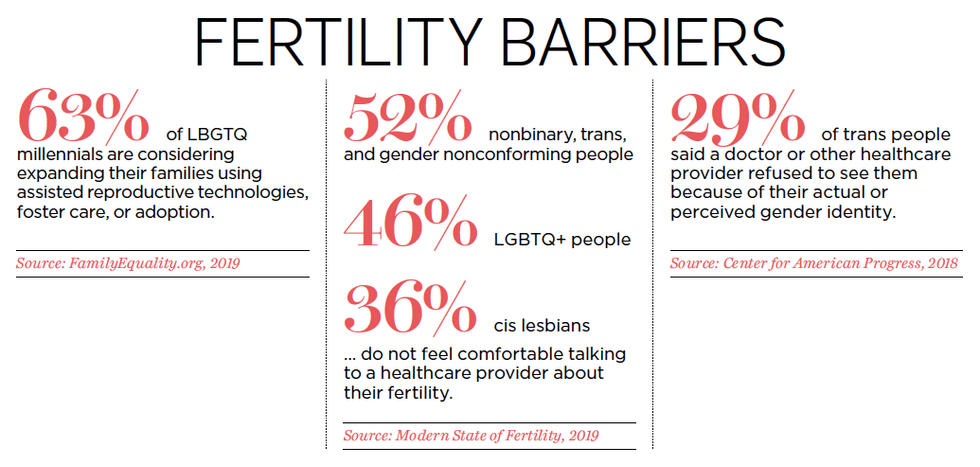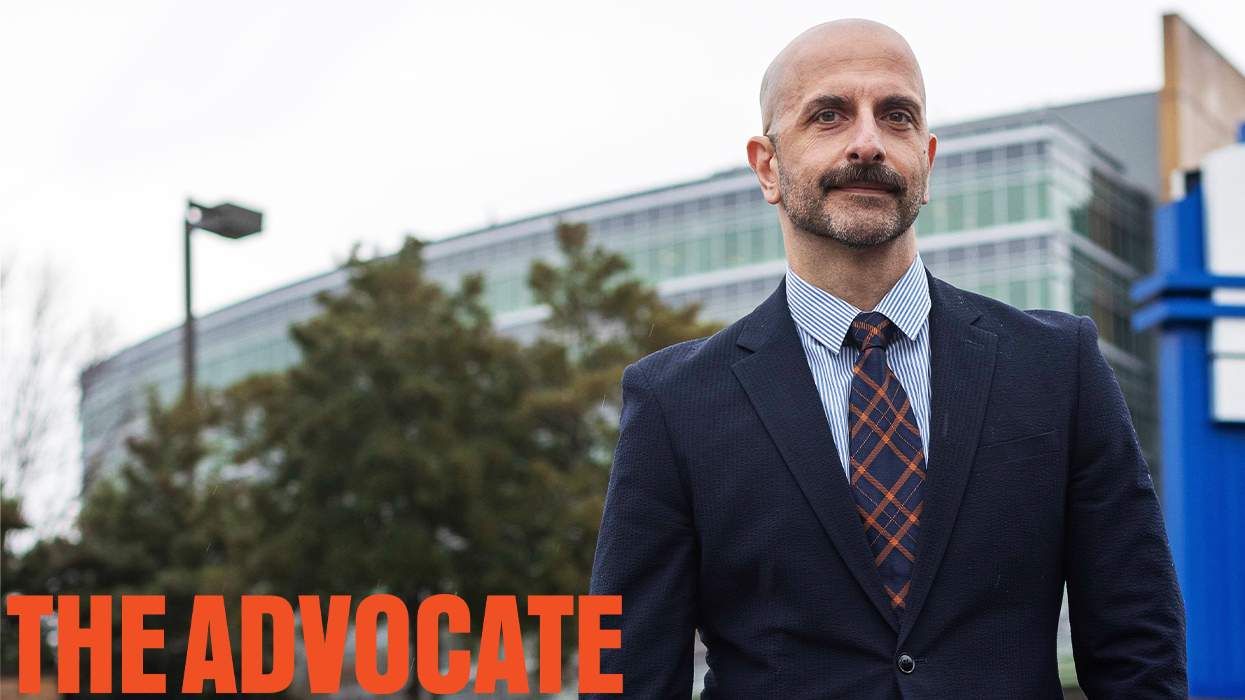A first-of-its-kind study published by Fertility and Sterility revealed that transgender men have a similar response to ovarian stimulation as cisgender women, even after they've been using testosterone for years.
The aim of the study was to investigate the outcomes of assisted reproductive technology in trans men and compare those to a matched group of cisgender women to see if testosterone had a noticeable impact on fertility through egg freezing, in vitro fertilization, and other forms of assisted fertility.
Researchers reviewed the records of 26 trans males and 130 cisgender women who sought care from 2010 to 2018. The majority of trans males (61 percent) had received testosterone hormonal therapy but were off the hormone a mean of four months before starting assisted reproductive therapy. The mean time they were on testosterone before seeking fertility assistance was 3.7 years (however, the range spanned from three months to 17 years).
In all 26 cases, the trans men had viable eggs retrieved, with an average of 20 eggs per person. Overall, 16 out of the 26 trans men only had eggs retrieved and preserved in a cryogenic bank, while seven had fresh or frozen egg transfers.
Of those seven, two carried the babies themselves while the remaining five had transferred embryos implanted in cisgender female partners. All of the pregnancies were successfully carried to term, ending in live births.
The study itself is groundbreaking for trans men who dream of having biological children but are worried about how testosterone use interacts with fertility. It should also encourage doctors who have shown reluctance in referring their trans patients to a fertility practice to reconsider.
"Before this study, we did not know if long-term testosterone use had a negative impact on egg reserve but, remarkably, testosterone does not appear to have an effect on the ovarian reserve as measured by egg count," researcher Nina Resetkova told Medscape Medical News. "Trans males worry that they've thrown in the towel, and by committing to testosterone have started on a pathway with no return, but these data suggest they still have options."
Resetkova did caution that trans men who undergo puberty blockers as teens may see those options curtailed. "We have little data so it's hard to be conclusive, but it's unlikely these patients would have mature hormonal responses and the ovaries might be in a naive state," she hypothesized.
Acknowledging that the study was limited by size, Resetkova noted that it found "ovarian stimulation outcomes that are similar to those of cisgender counterparts, and this seems to be true even in cases of patients who have already initiated hormonal transition with the use of testosterone."
















